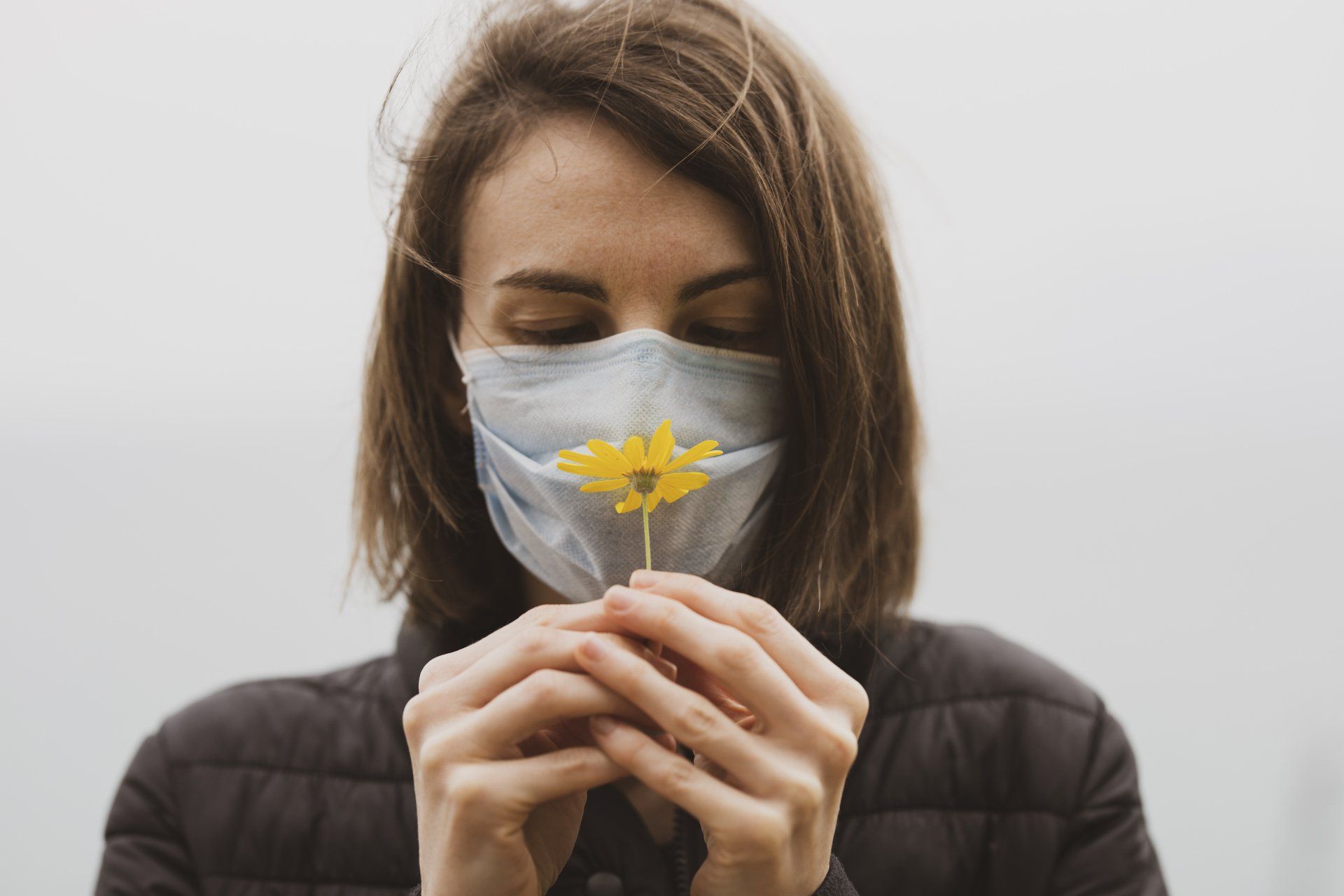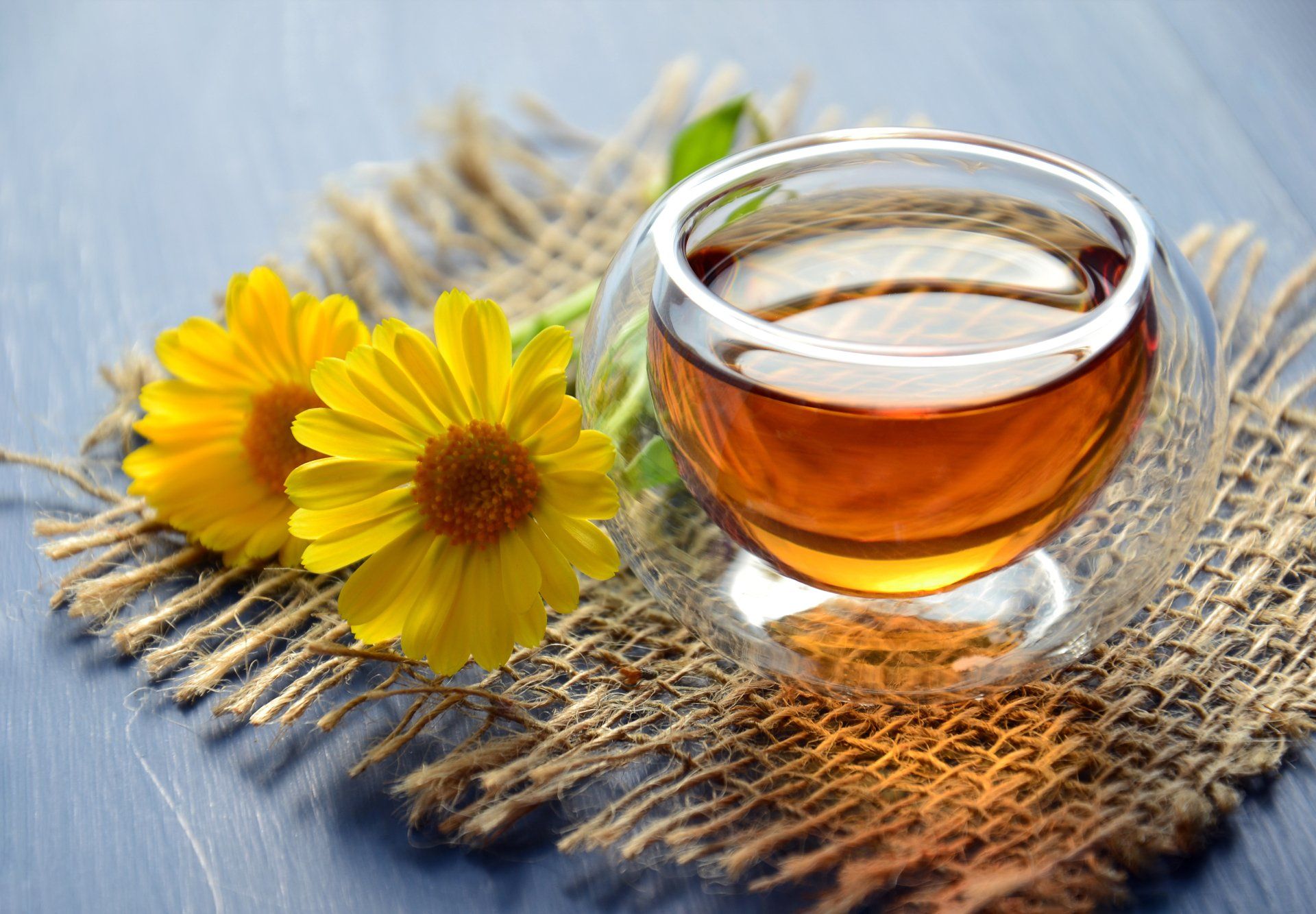Natural Solutions to Fight Ragweed and Seasonal Allergies
Natural Solutions to Fight Ragweed and Seasonal Allergies

Are seasonal allergies driving you crazy? The sneezing, runny nose, itchy eyes, and congestion can make life miserable. And just when you think you have overcome one allergy trigger, another one seems to pop up. Ragweed allergy is one of the significant causes of seasonal allergies with the potential for prolonged symptoms that can last from early spring until late fall. But, you don't have to suffer through it. With natural remedies, you can ease your allergy symptoms. In this blog post, we will explore natural solutions for preventing and treating ragweed and other seasonal allergies.
Identify and Avoid Allergens:
Managing allergic reactions effectively requires a multifaceted approach. The first step is identifying the specific triggers. For ragweed allergy, for instance, avoiding exposure to the plant and its pollen is crucial. Ragweed pollen is most prominent in the air during the late summer and early fall months.
Monitoring pollen reports can be a proactive measure towards managing your allergy. These reports provide real-time data on pollen counts in your environment, allowing you to plan your activities accordingly. It's advisable to stay indoors during peak pollen hours, which often occur in the early morning and late afternoon.
In addition to monitoring and modifying your outdoor activities, controlling your indoor environment is equally important. On days with high pollen counts, it's beneficial to keep windows and doors closed to reduce exposure to allergens.
Integrating High Efficiency Particulate Air (HEPA) filters into your home's HVAC system can also significantly improve your indoor air quality. HEPA filters are designed to capture microscopic particles, including pollen, dust mites, and mold spores, thereby reducing allergen levels inside your home.
Showering regularly, especially after spending time outdoors, can help remove pollen from your skin and hair, preventing further exposure. Washing your clothing and bedding frequently can also eliminate allergens that may have latched onto fabric.
Additionally, consider wearing sunglasses and hats when outside to protect your eyes from pollen. If you have pets, ensure they are bathed regularly, as they can carry pollen into your home on their fur.
Nasal Irrigation:
Nasal irrigation, or nasal washing, is a time-tested, natural remedy that can provide significant relief from seasonal allergy symptoms. This technique involves flushing out the nasal passages with a saline solution, which aids in clearing mucus, reducing inflammation, and eliminating allergens that have taken up residence in the nasal passages. There are several tools available for this process, including a neti pot, nasal irrigation bottle, or bulb syringe.
The neti pot, a small container often made of ceramic or plastic, is shaped like a teapot with a long spout. When using a neti pot, it's important to lean over a sink, tilt your head sideways, and gently pour the saline solution into one nostril, allowing it to flow out through the other.
Similar to the neti pot, a nasal irrigation bottle is used to introduce a saline solution into the nasal passage. The main difference is that these bottles use positive pressure to send the solution through the nostrils.
A bulb syringe works on the same principle, but its design makes it more suitable for people who might find the neti pot or nasal irrigation bottle difficult to use. It's also an excellent option for children.
Regardless of the method you choose, it's crucial to ensure the safety and effectiveness of your nasal irrigation routine. Here are a few tips:
- Always use distilled, sterile, or previously boiled water to make up the saline irrigation solution. Tap water is acceptable if it's been filtered or treated.
- Clean and dry your device after every use to prevent the growth of bacteria.
- Do not share your device with others to avoid the spread of infections.
- If you're new to nasal irrigation, start with a weaker saline solution and gradually increase the salt concentration as you get accustomed to the practice.
- Never force the solution into your nostrils; it should flow freely.
- If you experience any discomfort, pain, or nosebleeds, discontinue use and consult a healthcare professional.
By adhering to these guidelines, nasal irrigation can be a safe and effective tool in your allergy management arsenal.
Quercetin Supplements:
Quercetin, a natural plant pigment found in many fruits, vegetables, leaves, and grains, is recognized for its antioxidant properties and potential benefits in combating seasonal allergies. This flavonoid has been shown to block histamine release - the chemical your body produces during an allergic reaction, which causes symptoms like sneezing, itching, and nasal congestion.
A study published in 'Fitoterapia' highlighted quercetin's potential as an anti-allergic agent, noting its ability to inhibit histamine release from mast cells and basophils when allergens are encountered, thereby reducing the severity of allergic reactions^1^.
Another research published in 'Mediators of Inflammation' noted the therapeutic effects of quercetin on inflammation, a common symptom of allergies^2^. Additionally, a randomized double-blind placebo-controlled trial in the International Archives of Allergy and Immunology examined the effects of enzymatically modified isoquercitrin, a type of quercetin, on symptoms of Japanese cedar pollinosis, a common cause of seasonal allergies^3^.
While quercetin supplements can be found in most health food stores, it's best to start taking these two to three weeks before allergy season starts. This allows your body to build up natural defenses against ragweed and other seasonal allergens.
In addition to quercetin, Vitamin C can also be beneficial in managing seasonal allergies. It's a powerful antioxidant that supports the immune system and acts as a natural antihistamine. Some studies suggest that a high intake of vitamin C might help reduce allergy symptoms by reducing histamine release and increasing its detoxification.
Remember, while these natural remedies can help manage allergy symptoms, it's crucial to consult with a healthcare professional before starting any new supplement regimen, especially for individuals with pre-existing conditions or those already on medication.
Herbal Supplements:
Herbal supplements, such as butterbur, stinging nettle, and bromelain, have anti-inflammatory properties and can help ease allergy symptoms. Butterbur, also known as Petasites Hybridus, is a traditional remedy for hay fever that has been shown to have antihistamine properties. Stinging nettle, on the other hand, has been shown to block the body's production of histamine and reduce inflammation. Bromelain, a digestive enzyme found in pineapple stems, has been shown to reduce swelling and inflammation associated with allergies.
A Balanced Diet:
A healthy and balanced diet can help boost your immune system and reduce allergy symptoms. Eat plenty of fresh fruits and vegetables, lean proteins such as fish, nuts, seeds, and legumes. Foods high in omega-three fatty acids, such as salmon and walnuts, help to reduce inflammation in your body. Foods high in vitamin C can also help reduce histamine levels. Food preparation is vital; always cook your food at home and, whenever possible, avoid processed and packaged foods.
Conclusion:
Seasonal allergies can be a nuisance, but they don't have to ruin your day. By incorporating these natural remedies into your daily routine, you can alleviate your allergy symptoms and make your life more comfortable. Always remember, it's best to consult with a healthcare professional before trying out new supplements or making significant changes to your diet. With a little support from Mother Nature, you can kiss those allergies goodbye.
Footnotes
- https://www.sciencedirect.com/science/article/pii/S0367326X15300927
↩
- ps://www.hindawi.com/journals/mi/2016/9340637/abs/
↩
- ps://karger.com/iaa/article/149/4/359/166318" ↩









